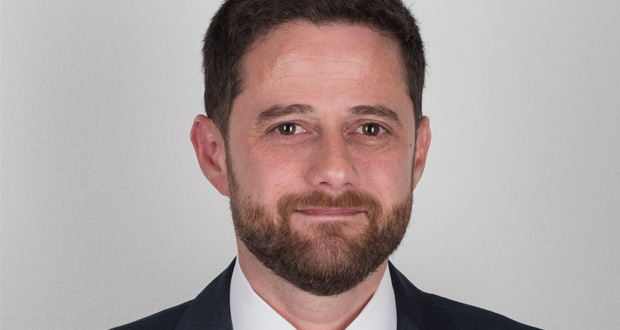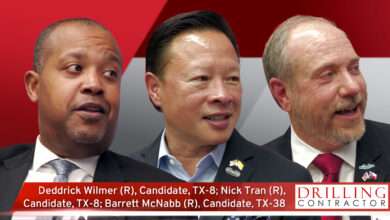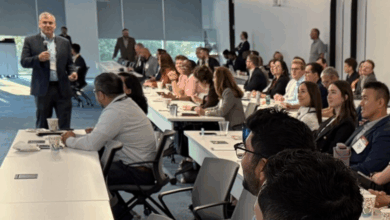Mardonildo Filho, Ventura Offshore: Attracting young talent will be critical for industry growth

By Stephen Whitfield, Senior Editor
The oil and gas industry in Brazil is in a fascinating position right now. The country is one of the largest oil producers in the world, holding some of the largest recoverable ultradeep reservoirs. As Brazil looks to push further growth of exploration and production activity going into the next decade, it is incumbent on the industry to continue making inroads with people who could potentially make up the workforce of the future.
For Mardonildo Filho, trade organizations like IADC are in a unique position to facilitate conversations between the industry and the young professionals who will help drive the industry forward.
“There’s so much we can do,” he said. “In Brazil, there are a few areas where our industry is not well known. There’s also this misconception that our industry is close to the end. We need to raise awareness of the fact that we are going to be around for many more years.”
As Chair of the IADC Brazil Chapter, Mardonildo has led the group to prioritize education and recruitment of students, including efforts to cultivate relations with university students to help broaden their understanding of oil and gas. In 2022, the chapter added an official liaison to the Federal University of Rio de Janeiro. It has also invited students to rig visits, allowing them to get a hands-on view of life on the rig. The chapter also partners with member companies to let students try their hand at simulator-based training, something that he said can help foster greater curiosity about how drilling works.
“We have very good training schools with big simulators. We sit them down in the cyber chairs, let them grab the joystick and move the loads around. A lot of the students cannot believe the level of technology that we have. They are impressed,” he said.
From scholar to industry
Mardonildo’s interest in developing student engagement also stems, in part, from his own career path. Growing up in Rio de Janeiro, oil and gas never entered his mind as something he wanted to do. It wasn’t until his final year at the Pontifical Catholic University of Rio de Janeiro in 2000 – when he received a scholarship from the Brazilian government for petroleum engineering – that he got involved with the industry. As part of that scholarship, he interned for Petrobras, building software for underbalanced drilling operations.
“At that time, the government was trying to raise awareness of the industry in Brazil through student scholarships,” he said. “Because I got one of those scholarships, it helped me become more aware that there was a lot more to engineering than the civil engineering I was doing,” he said.
He also recalls interviewing with Transocean during his senior year of university, drawn by the company’s recruiting message. He ultimately ended up joining Transocean after graduating in 2001 with degrees in industrial and civil engineering.
After completing a two-year training program, he assumed a rig engineer role. Over the course of 18 years at Transocean, he would also take on rig manager positions for rigs working in the US Gulf of Mexico, India, Brazil and Guyana, along with stints as South America Human Resources Manager and Global Development Manager.
In 2018, he left Transocean to pursue an MBA from the IMD Business School in Switzerland. Two years later, he was back in the industry as Chief Operating Officer at Brazil-based Knarr Drilling. He then joined Ventura Offshore, another Brazilian drilling contractor, first as Head of Corporate Strategy in 2021, then taking a role as Chief Commercial Officer in 2022. He is now the company’s Chief Strategy Officer.
“I used to be a lot more focused on equipment, because I thought that was the most important part of the rig,” he said. “But when you get into managerial positions, you start to understand there’s more importance in how you recruit and how you put people together so they connect.”
The new generation
In acknowledging the personal growth he’s seen throughout his two-decade career, Mr Filho also noted how the industry has changed. The type of people needed to keep the industry moving forward has evolved as companies have embraced digitalization and automation systems.
The need for tech-savvy personnel has only further emphasized the importance of recruiting and retaining young professionals. Mr Filho said the industry must engage in community outreach to continue showing how it can be an important contributor to society in the near- and long-term future.
“We need to have a social license to operate. And in order to have a social license, you have to explain what kinds of things you do and why you do them. You need to pay attention to your processes and procedures,” he said. “The environment is important. The society you leave behind as you operate in an area is important. You must create the relationships and long-lasting positive impacts in the communities we operate.” DC




